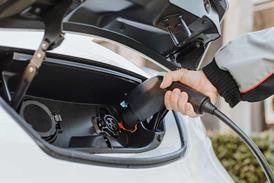- More from navigation items
- Home
- News
- Insights
- Policy direction and timing must align to deliver heavy transport decarbonisation
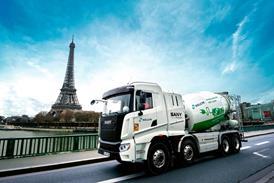 SANY looks to bring the best of Chinese EV technology to Europe
SANY looks to bring the best of Chinese EV technology to Europe Manufacturers urged to be ready to beat new competitors when electric re-fleeting takes off
Manufacturers urged to be ready to beat new competitors when electric re-fleeting takes off Fleete sees charging hubs rather than in-depot chargers as the future of electric
Fleete sees charging hubs rather than in-depot chargers as the future of electric
- Viewpoint
- Data
- Sponsored
- Events
- Motor Transport
A | B | C | D | E | F | G | H | I | J | K | L | M | N | O | P | Q | R | S | T | U | V | W | X | Y | Z
A
An electric current that reverses direction at regular intervals. AC is used for electricity distribution.
B
The major advantages of B100 biodiesel are that it can be produced from 100% renewable resources and that it significantly reduces carbon emissions. B100’s big selling point is that it contains 0% fossil fuels, guaranteed. It is pure, 100% biodiesel. It’s the first generation of biodiesel and is usually produced from vegetable oil.
Meaning any vehicle that runs solely on electrical energy stored in the vehicle’s batteries from an off-board source, while emitting zero tailpipe emissions.
An alternative fuel type associated with decarbonisation narratives. It is made from an increasingly diverse mix of resources such as recycled cooking oil, soybean oil and animal fats. Biodiesel is a renewable, clean-burning diesel replacement that can be used in existing diesel engines without modification.
C
Making or resulting in no net release of carbon dioxide into the atmosphere, especially as a result of carbon offsetting.
This means that individual battery cells can be stacked and that no intermediate buffering modules are required. This increases the energy density per litre enormously.
The circular economy is a production and consumption paradigm that promotes the reuse, repair, refurbishment, and recycling of existing resources and goods for as long as feasible. The life cycle of items is therefore prolonged. The circular economy is a production and consumption paradigm that promotes the reuse, repair, refurbishment, and recycling of existing resources and goods for as long as feasible. The life cycle of items is therefore prolonged.
In Europe, this is the most prevalent charging standard for electric vehicles, including passenger cars and trucks. The maximum power output of most CCS chargers is between 50 and 400 kW.
A natural gas or biogas compressed to a high pressure and stored in tanks in the truck.
D
The act of reducing the amount of gaseous carbon compounds released in, or as a result of, an environment or process.
A DPF is used in Euro-6 emission compliant diesel engines. The manufacturers use the DPF to filter, store and burn the soot particles emitted as a result of the combustion process of the diesel.
The group of components of a motor vehicle that deliver power to the drive wheels.
E
The term electromobility includes full electric vehicles, as well as hybrid electric vehicles and those using hydrogen fuel cell technology.
Electric road system.
Electric road system vehicle.
F
A vehicle that uses compressed hydrogen gas as fuel to generate electricity to power its onboard electric motor using a fuel cell, occasionally in conjunction with a small battery or supercapacitor.
Fossil fuels are made from decomposing plants and animals. These fuels are found in the Earth’s crust and contain carbon and hydrogen, which can be burned for energy. Coal, oil, and natural gas are examples of fossil fuels.
H
A biofuel derived from animal, plant or algae remains, often associated with decarbonisation narratives.
K
Unit that indicates how long electric vehicles travel with unit energy consumption.
Watt is the SI unit of power which is equal to 1 Jule per second. It’s equivalent to the rate of energy consumption in an electric circuit where the potential difference is 1 volt and the current is 1A. 1kW (kilowatt) is equal to 1000W.
Kilowatt hour (kWh) is the one unit of energy. Equipment of a 1kW rating consumes 1kWh energy if it operates for 1 hour.
Energy required to travel a unit kilometre.
L
Refers to the final delivery journey in the supply chain.
Level 1 charging delivers 110-120V of alternating current. Slower charging because of low power flow.
Level 2 charging supplies up to 240V. Faster charging than Level 1. On average can fully charge an EV in 8 hours.
The fastest method of charging. Uses direct current to fully charge the car in approximately 30 minutes. Not used often as it is fairly new and very expensive.
A natural gas or biogas that’s been liquefied by bringing it down to a low temperature. When the gas liquefies, it reduces in volume that makes it possible to have enough fuel on board to drive long haul transport.
A fuel that contains a mixture of hydrocarbon gases.
M
A new charging standard for large-duty electric applications such big vehicles, boats, and industrial machinery. The MCS standard will be commercially accessible in 2024, with a maximum power output of up to 3.75 MW, or 3750 kW.
Megawatt
Megawatt hour
N
Flammable gas, consisting largely of methane and other hydrocarbons, occurring naturally underground (often in association with petroleum) and used as fuel. It is the most eco-friendly of all the fossil fuels.
A board of outside advisors under the direction of a minister that offers the Department of Transportation independent, impartial advice on decarbonising the transportation sector.
O
Charging your electrical vehicle at a lower rate during off-peak hours.
Infrastructure that allows automobiles to use cables put a cross roads to draw electricity. A pantograph is used to connect the vehicle to the cables (in a similar fashion to electric trains).
P
A mechanism used to attach a vehicle to the catenary cables above the road. While moving, the vehicle can collect electricity from the lines thanks to the pantograph’s electrical contact with the wires.
A type of hybrid electric vehicle that combines a gasoline or diesel engine with an electric motor and a big battery that can be recharged by connecting into an electrical outlet or a charging station for electric vehicles.
Power cycle is the act of turning the charger off and on again from the main circuit breaker.
The mechanism that transmits the drive from the engine of a vehicle to its axle. An electric power train is a combination battery, inverter, motor, and wheels. Powertrain without the electric motor is called drivetrain.
The electric vehicle charging stations are commercially and publicly accessible to electric vehicles to charge the battery.
R
This refers to the anxious feeling of operating an electric vehicle because of the fear of running out of battery charge while driving.
A type of hybrid EV that has a small petrol generator to charge battery when range is depleted. This allows for increased range.
A braking system that captures energy during vehicle motion. Decreases energy waste.
T
The total cost of operating a vehicle during its ownership tenure, including its purchase price, residual value at the end of its useful life, fuel and energy expenditures, and maintenance and repair costs.
V
A system that allows EVs to communicate with the power grid to manage the flow of electricity in either direction.
XYZ
A vehicle that emits no tailpipe pollutants from the onboard source of power.

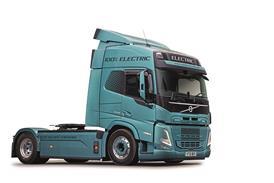


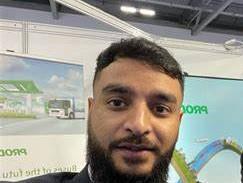
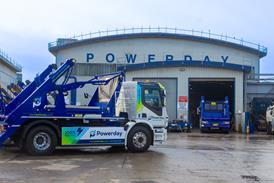


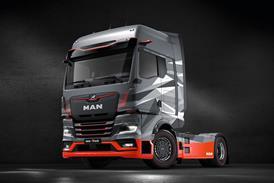
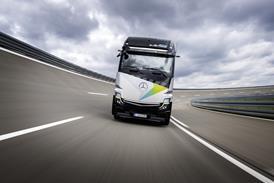
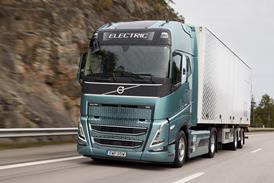
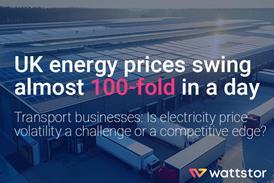
![Mercedes-Benz_eActros_600_(1)[1]](https://d2cohhpa0jt4tw.cloudfront.net/Pictures/274x183/8/1/8/17818_mercedesbenz_eactros_600_11_556244.jpg)

